文章更新日志:
2023-08-15 添加 设置实现 Serializable 接口的提示
用好系列就是记录自己日常如何使用好软件工具,此文为用好系列 - IDEA 之常用设置篇,由于公司使用的内网环境,自己平时在公司使用 IDEA 觉得还挺不错的设置无法及时同步到自己的家里,所以特意写一个系列用于记录自己日常开发编程时对这个常用的 IDE 所做过的改造,以提高自己的编码效率和积极性。此系列会持续更新。
首先说明一下本文介绍 IDEA 的版本是 2022.3.2 (Ultimate Edition),电脑系统为 Mac OS 12.5 Monterry 版本
IDEA 几乎所有的设置都在详细设置菜单当中,打开设置菜单的快捷键为 ⌘ + ,
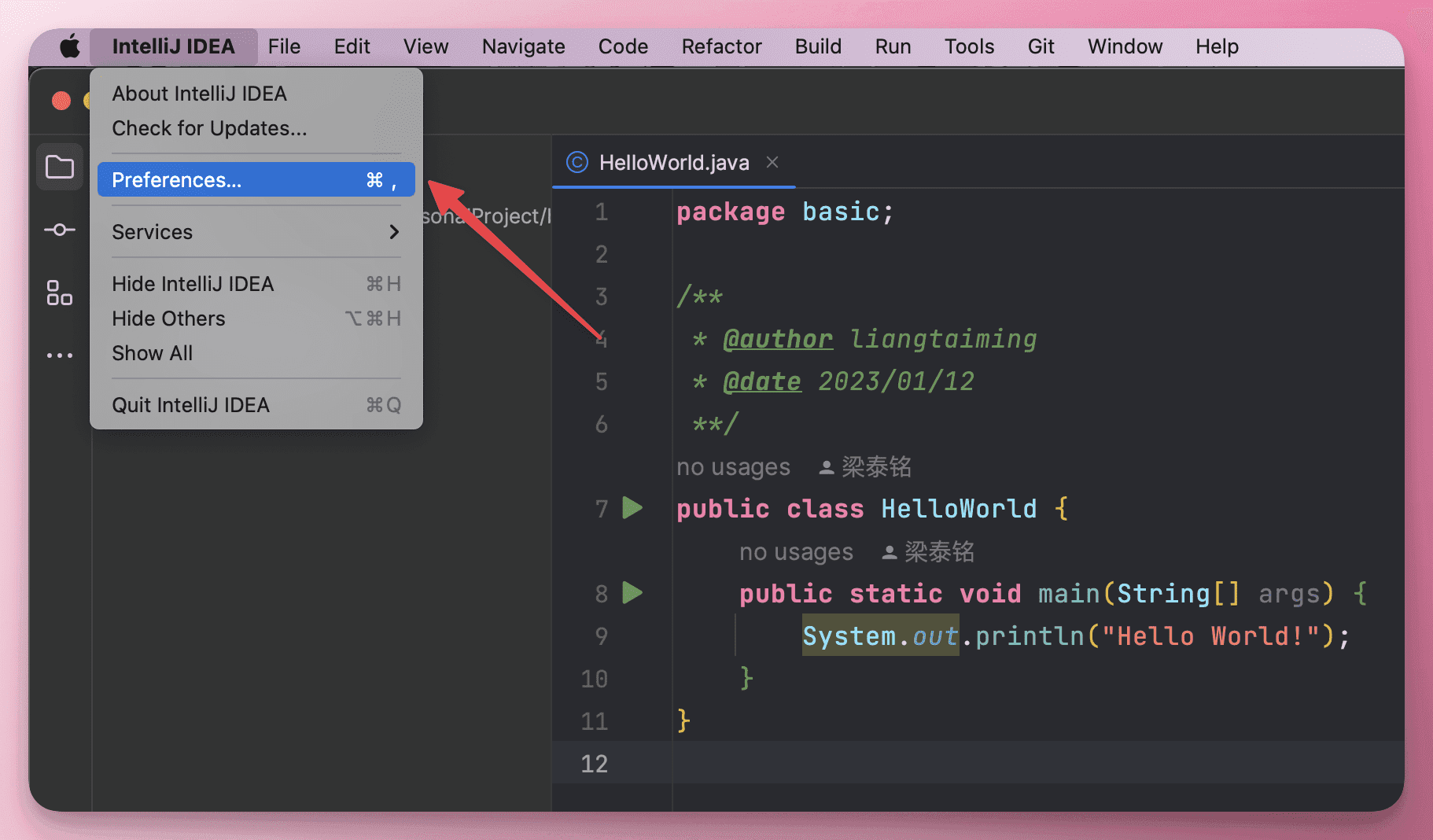
外观#
首先一款称心得手的兵器也得要悦目
主题#
个人偏向于使用暗黑的主题,用过这么多主题,还是最喜欢这个 Xcode-Dark 主题
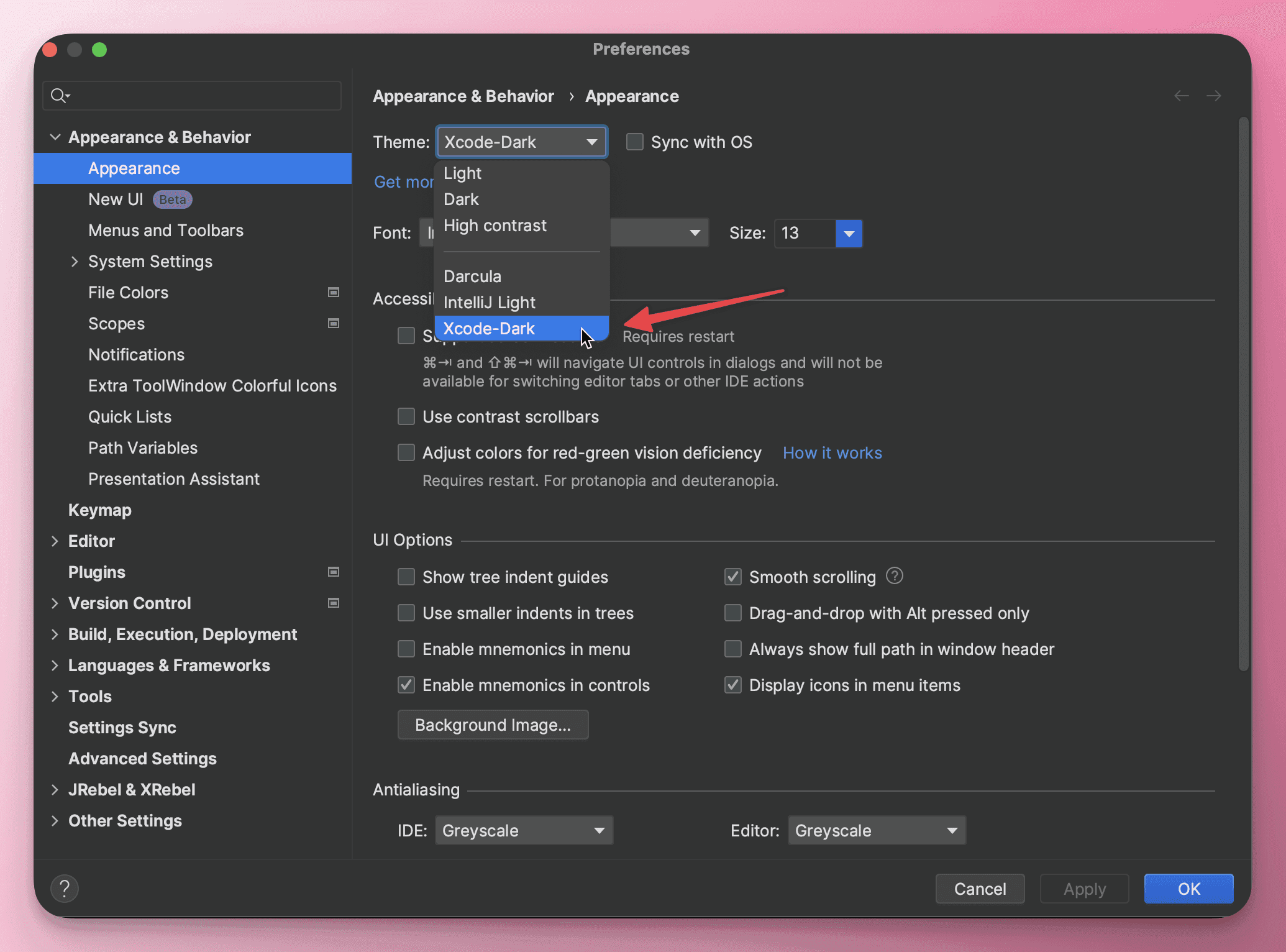
盗用一下这个主题插件官网的一个展示图,这种粉粉感觉还是很好看的。
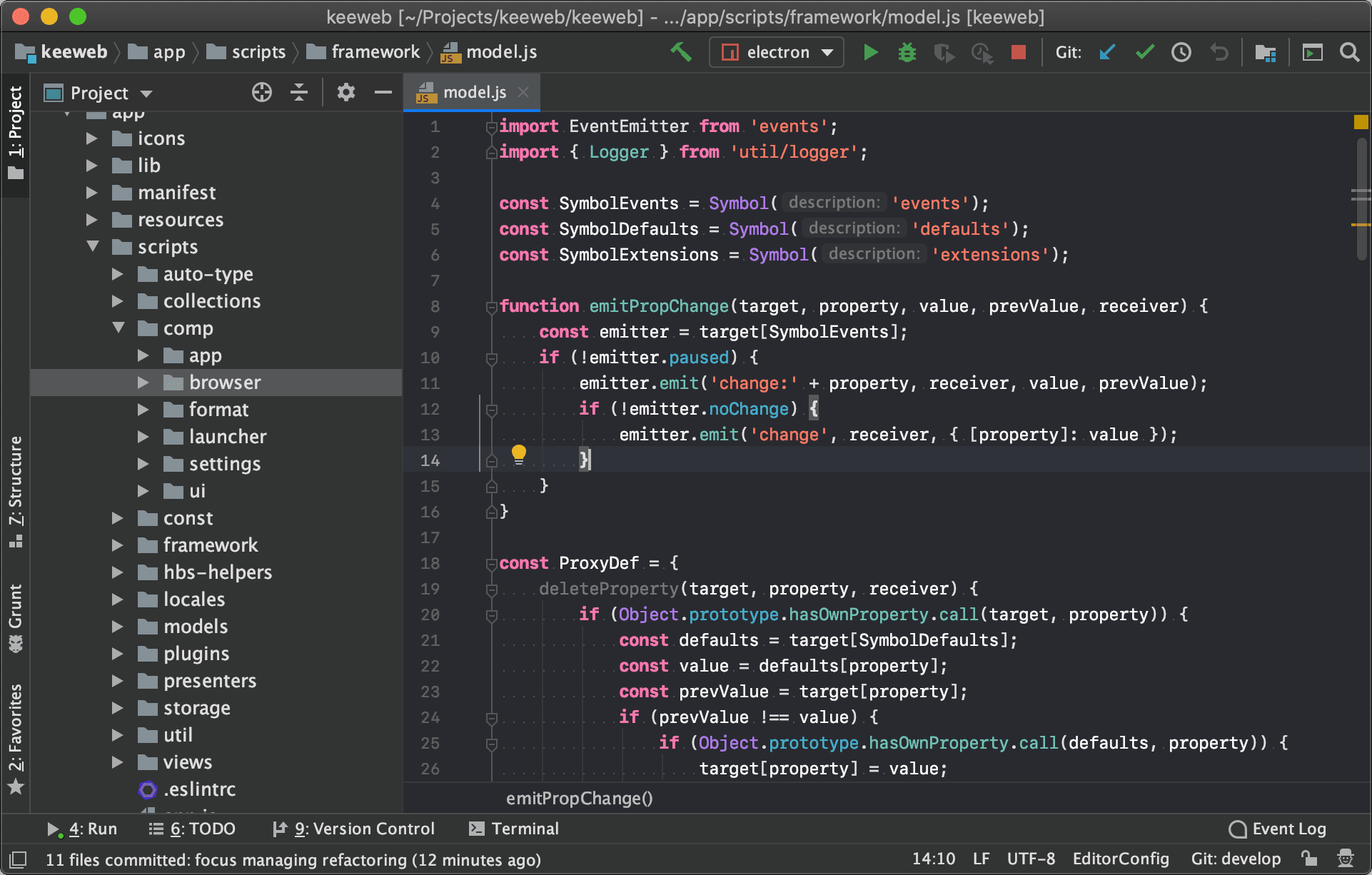
字体#
对于程序员来说,自己写的代码就好像是自己的名片一样,所以一颗好看的字体也是很有必要的
之前一直在用一个很好看的字体:JetBrains Mono,确实很好看,下面展示一下这个字体的具体代码
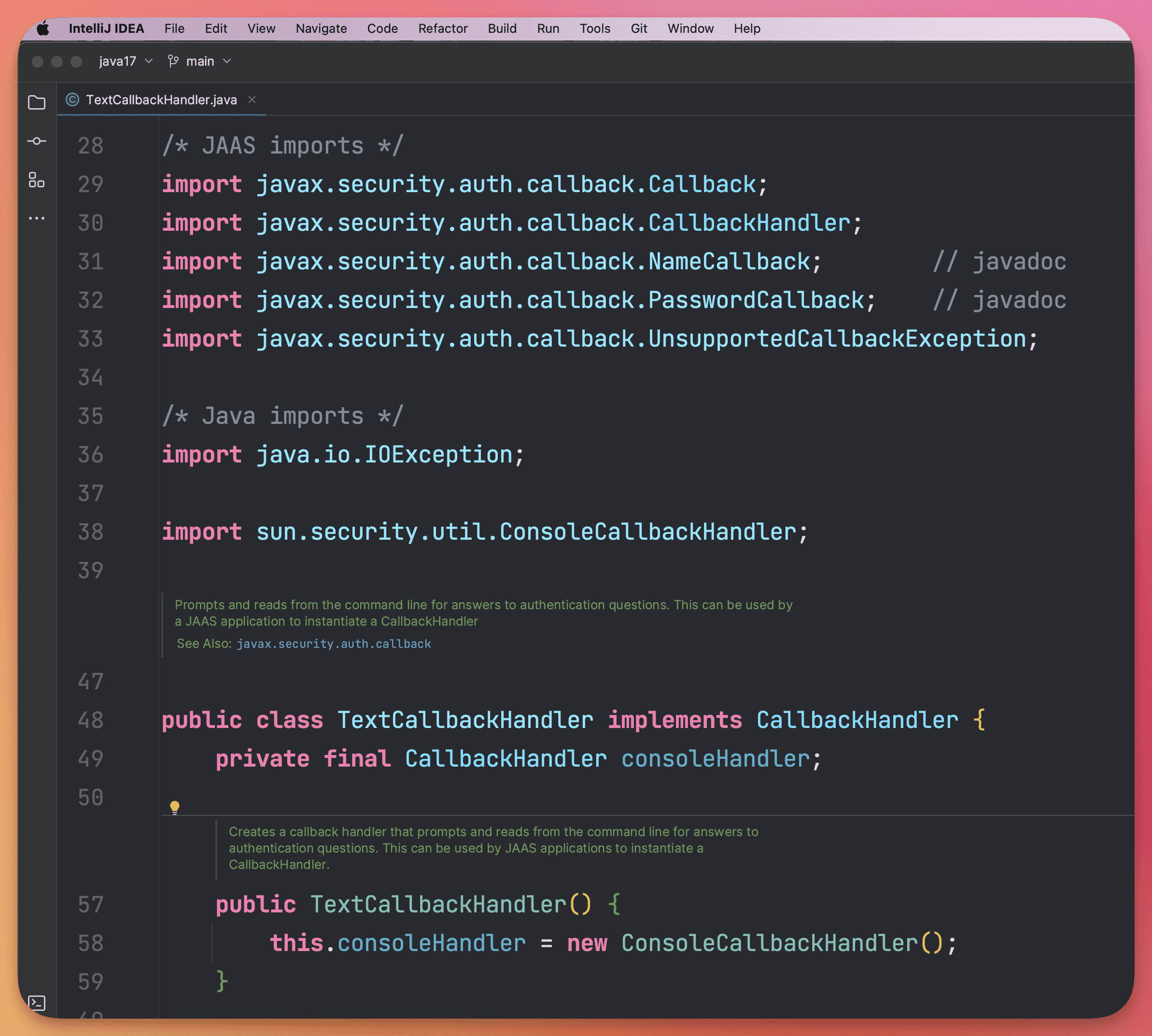
但是最近又发现一款字体长在了我的审美上,它就是Fira Code,同样给出同一段代码的展示
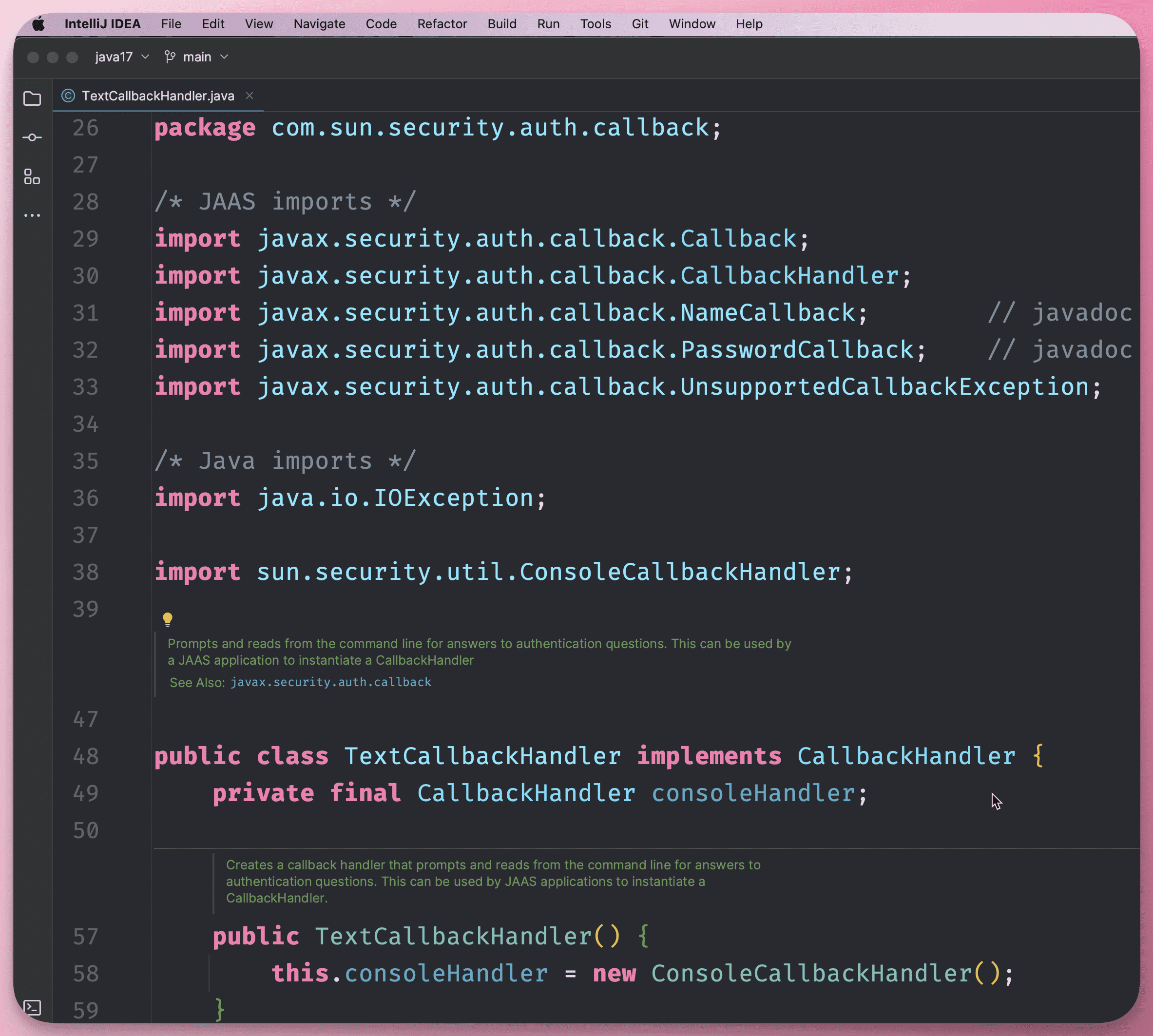
字体的设置在 Editor -> Font 里面
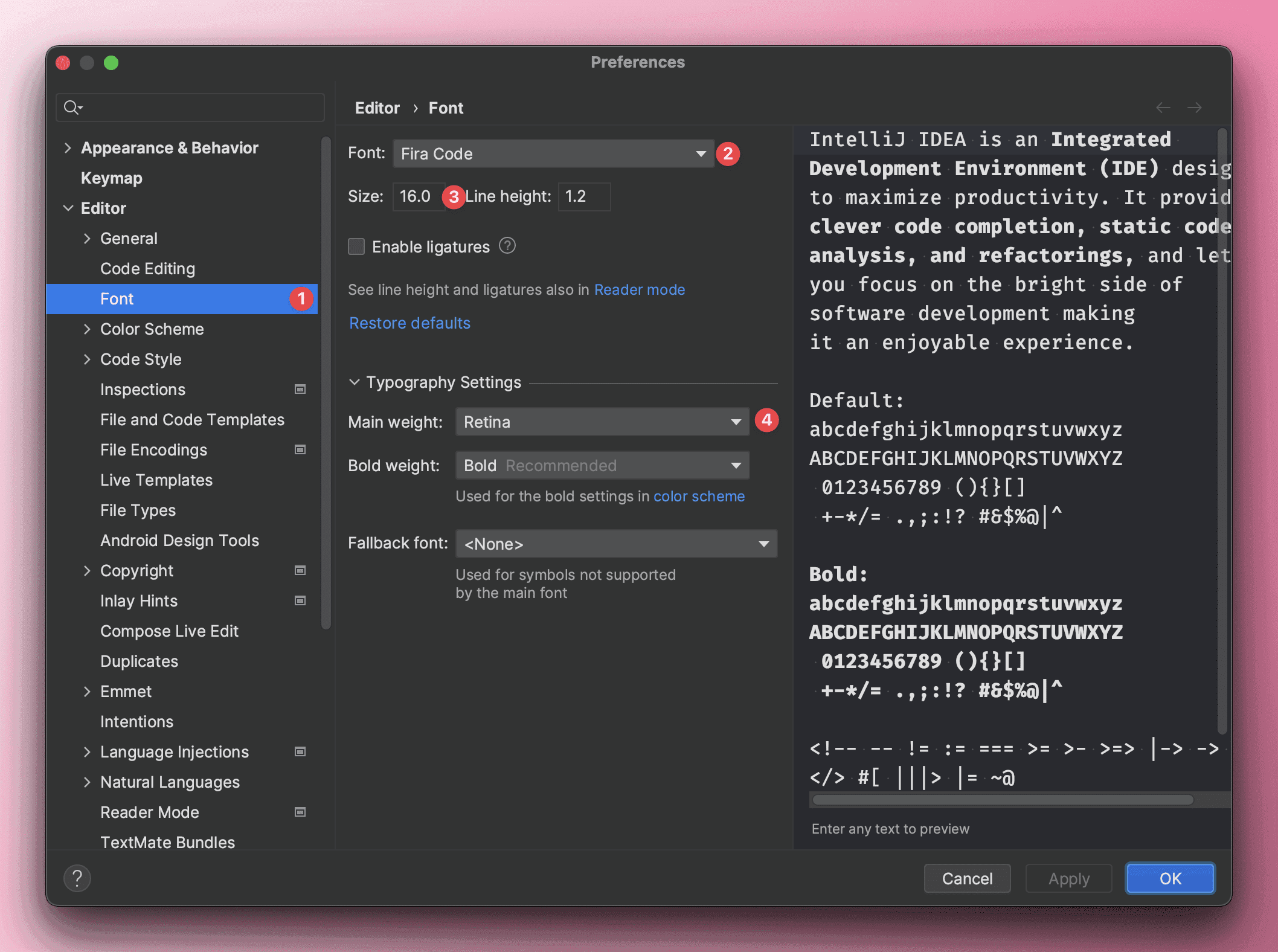
这个提一个关于鼠标调节字体的设置,使用 Ctrl + 鼠标滚轮设置字体大小
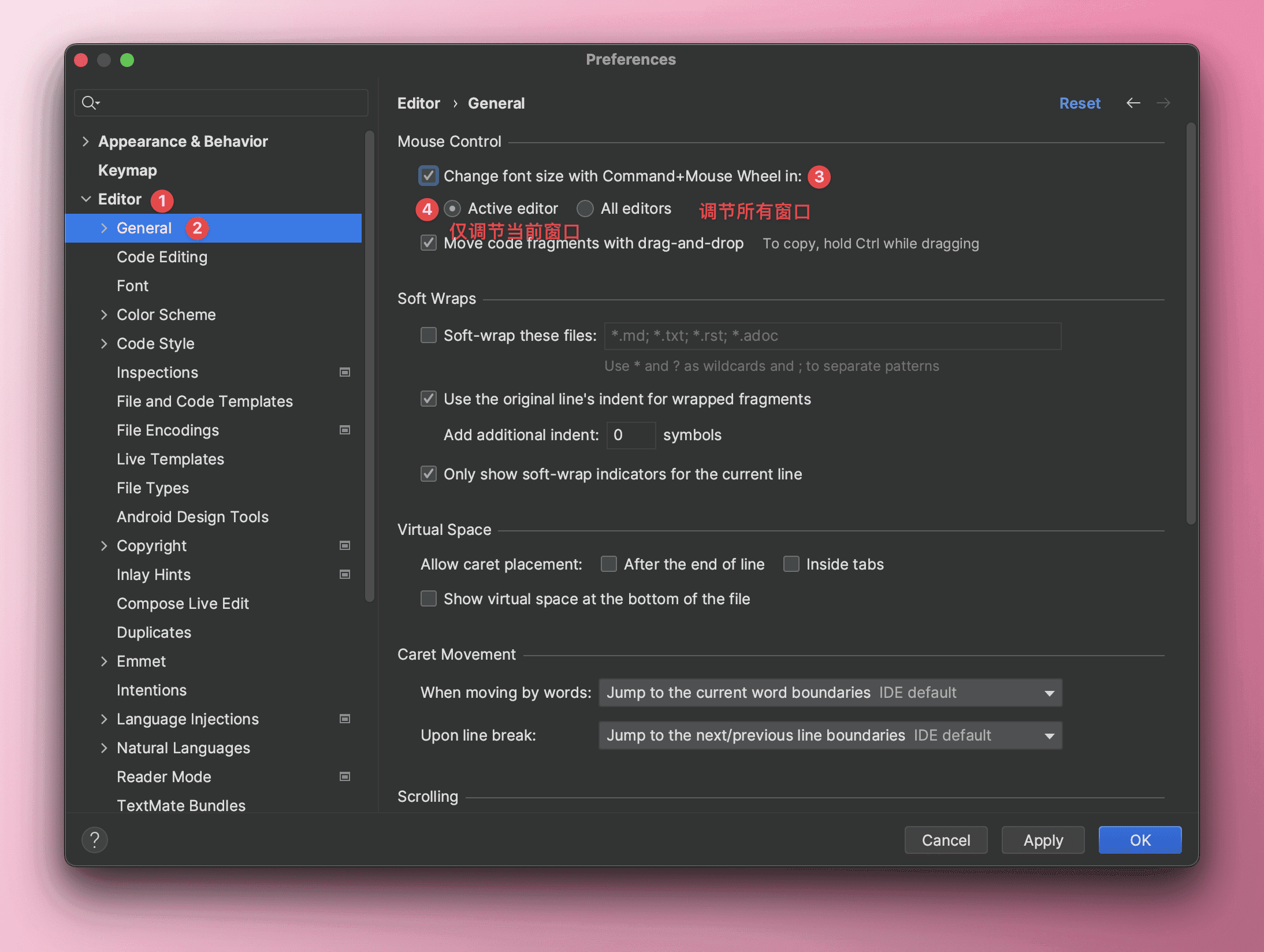
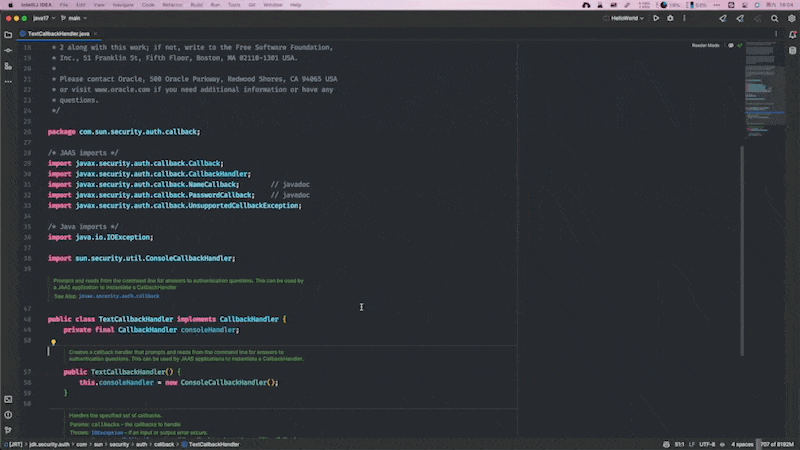
系统设置#
软件相关#
默认启动项#
设置 IDEA 每次打开项目时的设置:
- 新窗口
- 当前窗口
- 询问,我比较喜欢这个
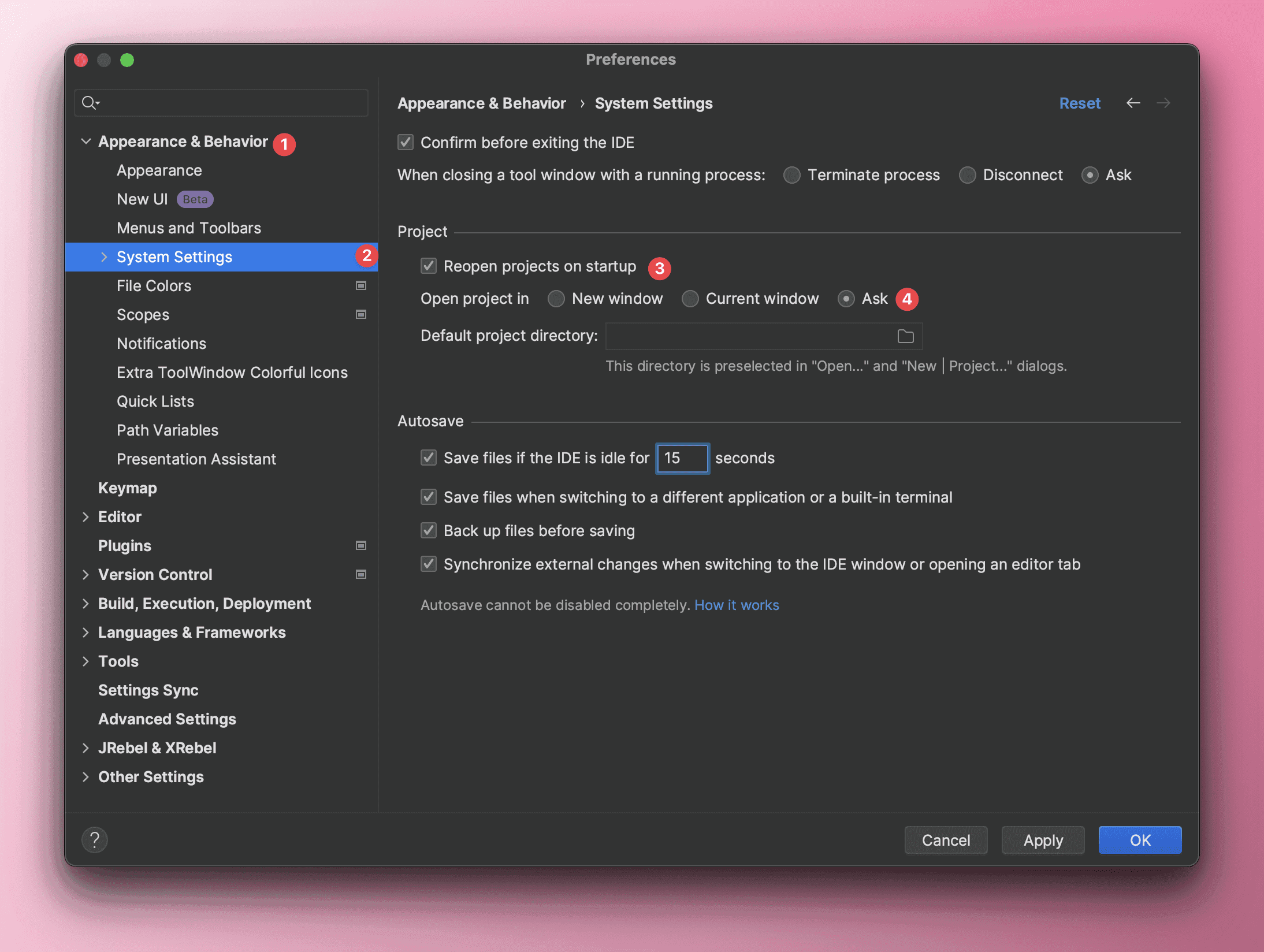
取消自动更新#
IDEA 软件本身的自动更新就不用勾选了,因为整个软件更新,容易引入兼容性文件,推荐不要选上
插件的更新可以勾上
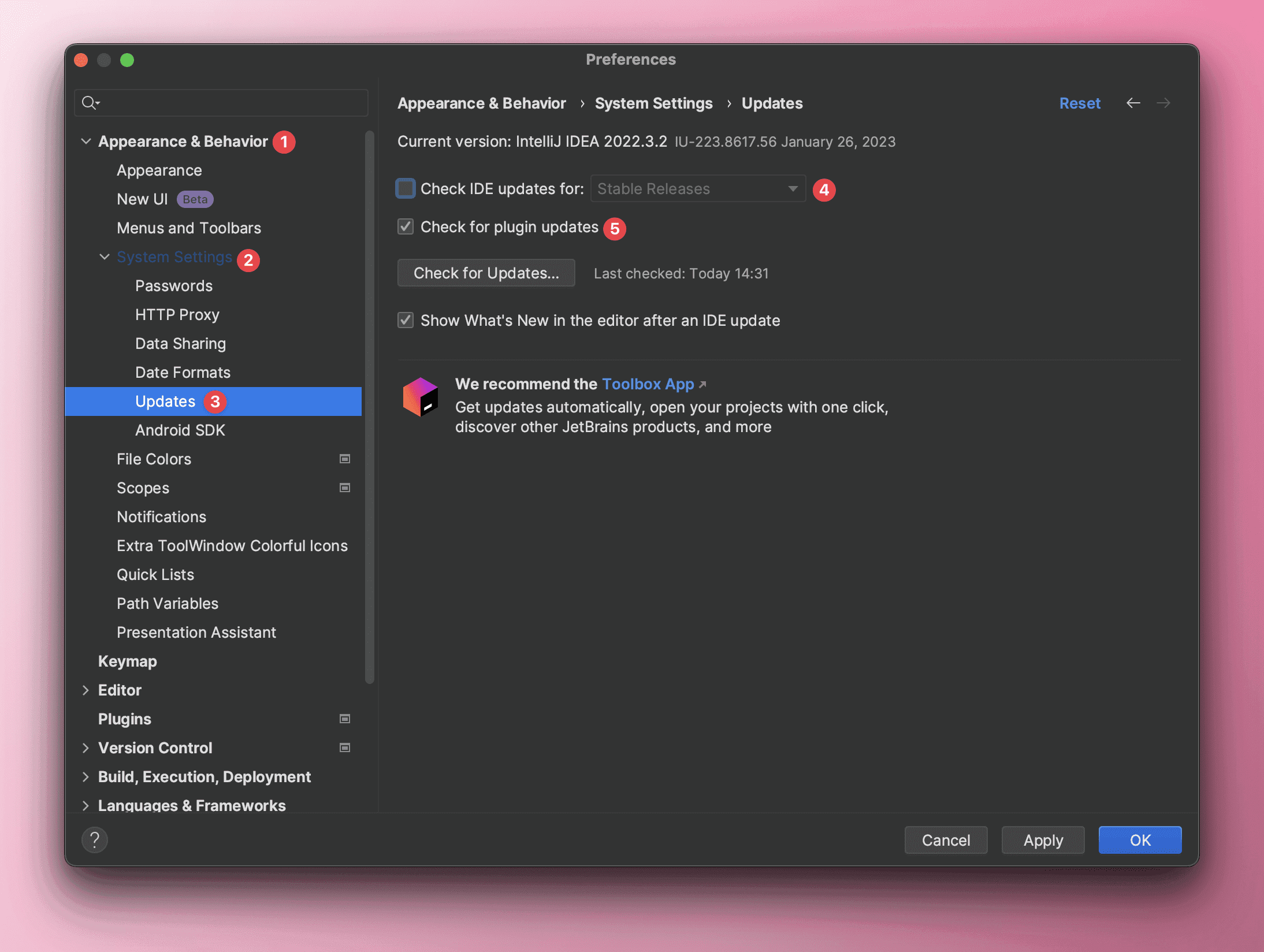
调整 IDEA 的启动参数#
让 IDE 运行更流畅
在菜单找到 Help -> Edit Custom VM Options ,在打开的idea.vmoptions 文件中调整 -Xms 和 -Xmx等 JVM 相关参数
-Xms2048m:指定 JVM 堆内存的初始大小-Xmx8192m:指定 JVM 堆内存的最大值-XX:+UseConcMarkSweepGC:启动 Java 虚拟机时,选择 CMS 垃圾收集器作为垃圾回收器-Djava.net.preferIPv4Stack=true:表示应该优先使用 IPv4 地址,而不是 IPv6 地址。这个参数常用在在处理网络连接,因为一些旧的网络设备可能不支持 IPv6 地址,如果默认情况下使用 IPv6 地址,可能会导致连接不可用。通过设置该参数为 true,可以确保 Java 在处理网络连接时优先使用 IPv4 地址,从而避免连接不可用问题-Dfile.encoding=UTF-8:文件编码使用 UTF-8 编码格式
项目编码相关#
显示代码行号与方法分割符#
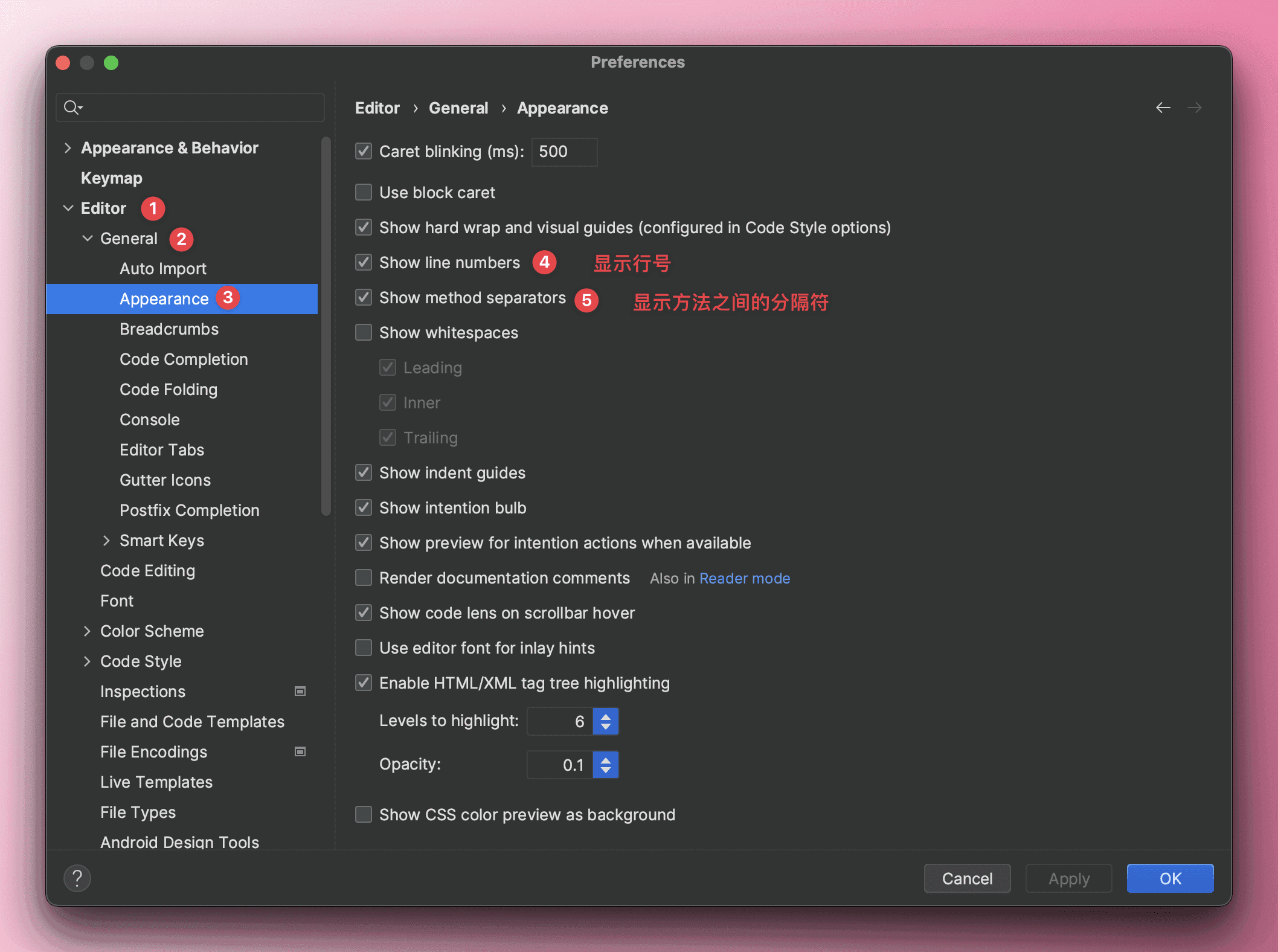
代码智能提示功能#
代码提示和补充有一个特性:区分大小写。建议去掉勾选,这样你不管输入大写还是小写都能出现代码提示
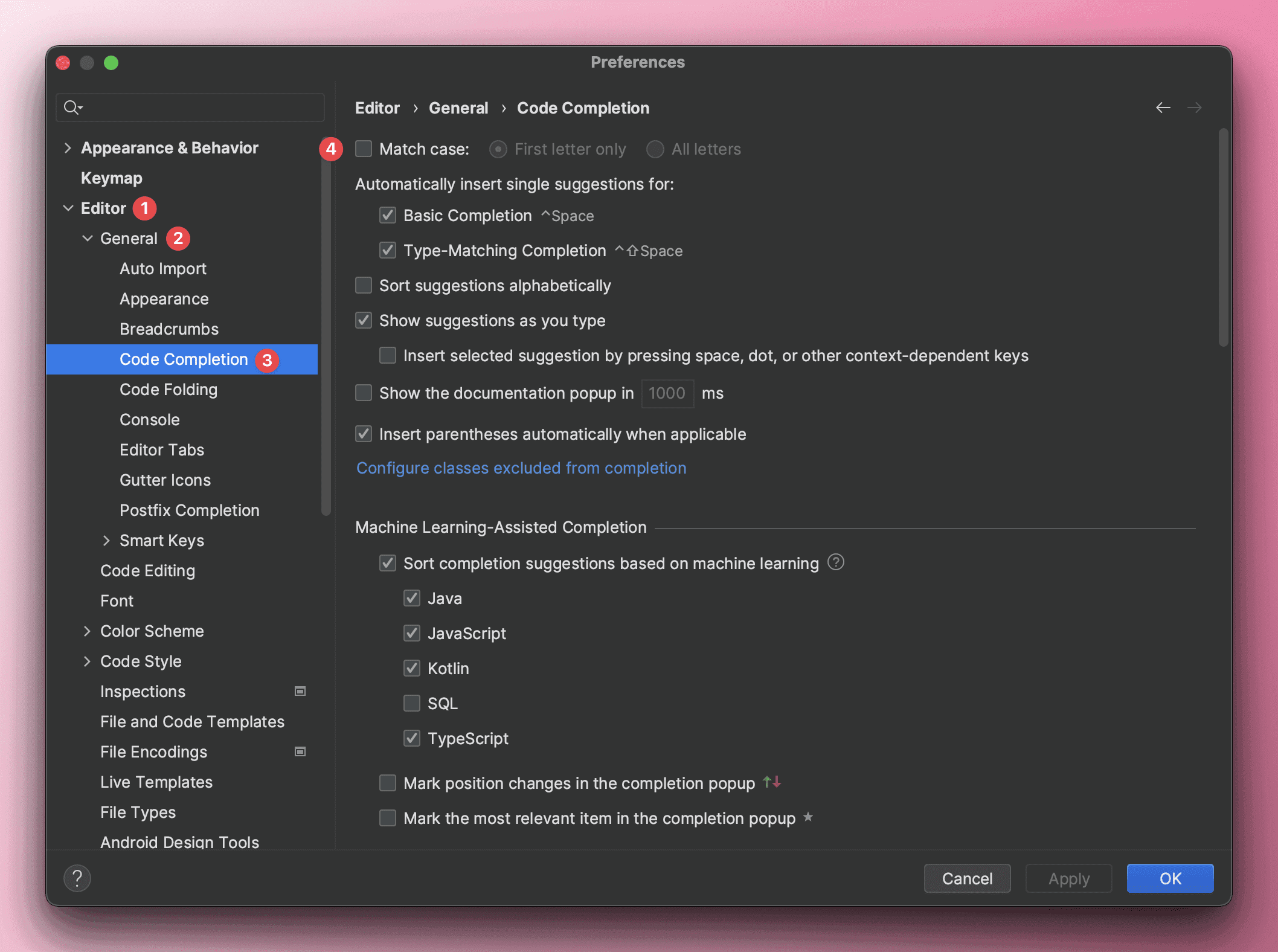
项目文件编码设置为 UTF-8#
有时候代码的错误就有可能是代码编码引起的,所以项目在开发前统一编码格式很有必要
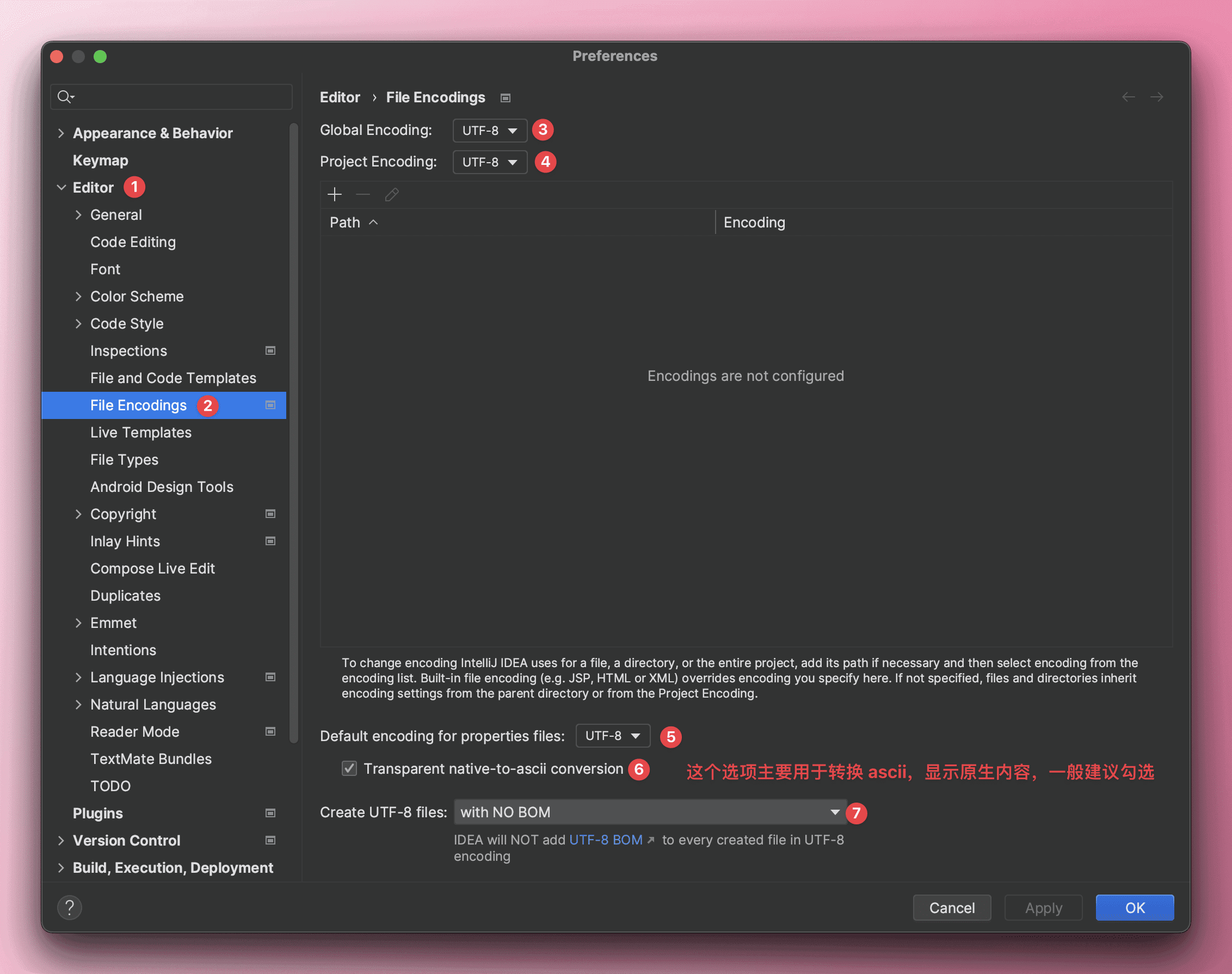
设置 Java 文件头注释信息#
我们在创建新的 Java 文件的都免不了需要在这个文件头部写上注释,用于说明这个文件的一些基本信息,比如说创建人、创建时间、描述信息等等,但每次都自己手动输入就很麻烦,所以 IDEA 给出了创建文件时的模板,我们可以自定义属于自己的模板
由于我是 Java 的开发者,所以只设置了 class、interface、Enum 这 3 种文件,关于注释中的 ${USER} 是预设的变量,其他的变量可以在官网查看
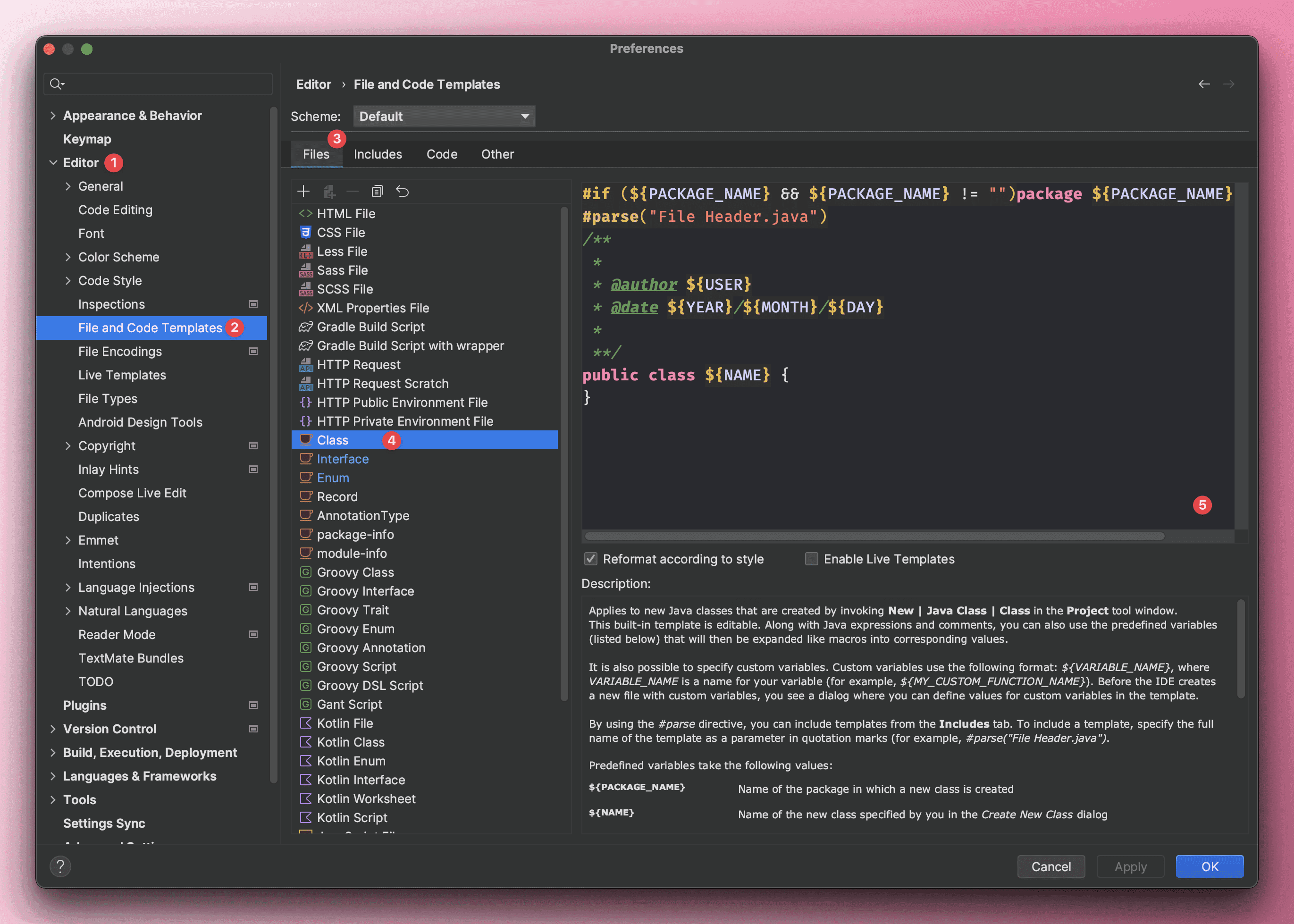
设置自动编译#
设置自动编译的好处:
- 能够节省时间,不需要手动编译
- 可以及时发现代码中的语法错误,避免在运行代码时出现问题
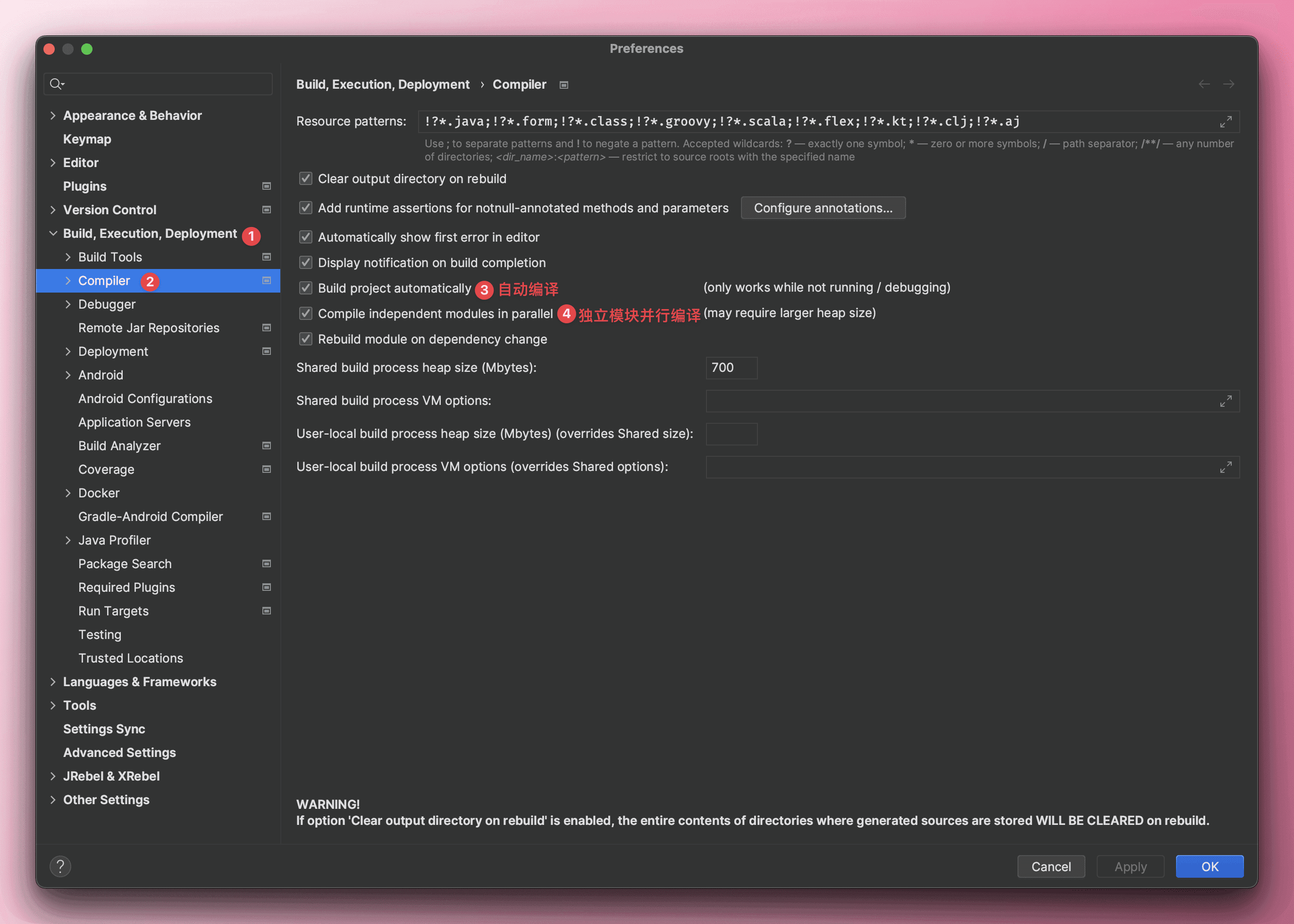
设置 Maven 的 Reload 操作#
当 pom.xml 文件发生改动变更的时候,会自动触发 Maven 的 Reload 操作
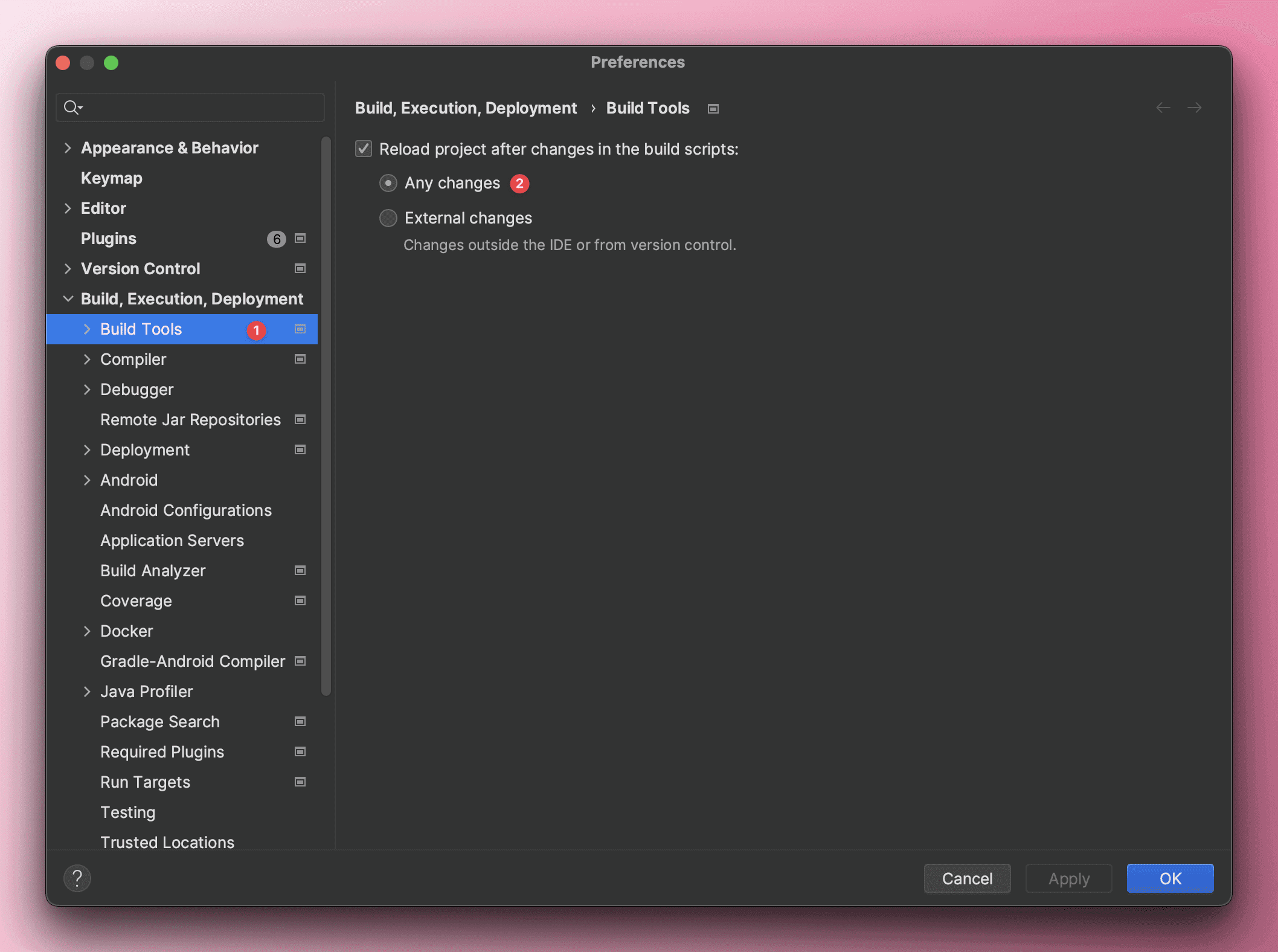
设置实现 Serializable 接口的提示#
某个类实现了 Serializable 接口后 IDEA 提示添加 serialVersionUID
- 打开设置
- 搜索
serialVersionUID - 把
Serialzable class without "serialVersionUID"勾上 - 然后,光标选中在实现了
Serializable接口的类,按下Option + Enter (Mac)/Alt + Enter (Win)就可以自动加上serialVersionUID
这个文章应该会持续更新,只要我还在用 IDEA 这个软件 ♪(・ω・)ノ